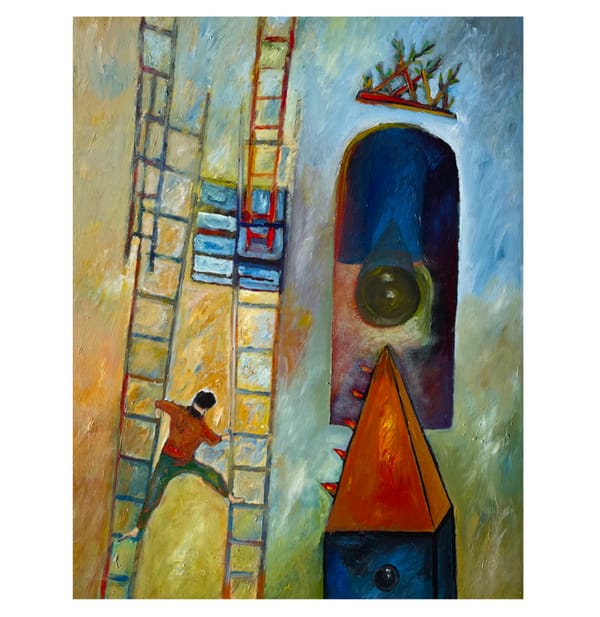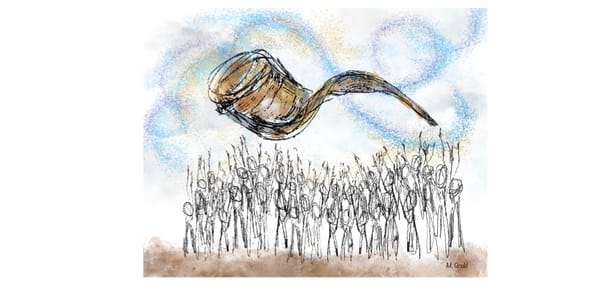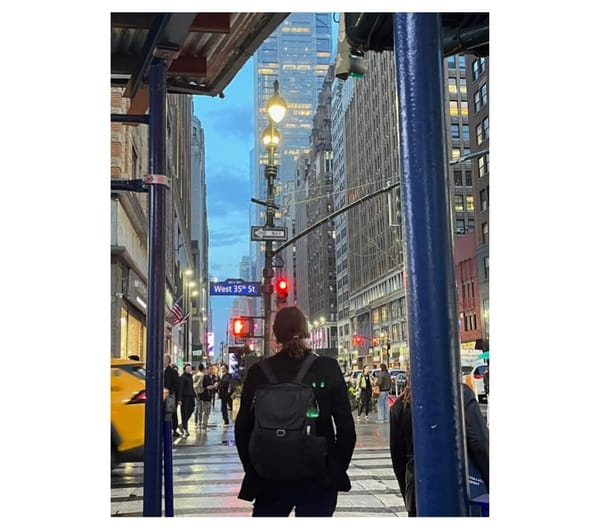The Fifth Question

by Diane Joy Schmidt
April 13, 2024
The dangers of a conflagration engulfing the Middle East are high. A thoughtful approach to the annual Passover Seder is critical now.
The first night of Passover this year is April 22nd, when the first Seder is held. The Passover Seder retells the story of when the Israelites, who had been slaves for Pharaoh to build the pyramids, were finally allowed to leave Egypt.
The youngest child comes forward and asks, “Why is this night of Passover different from all other nights of the year?” Four answers follow that explain the Seder. The primary and first answer is that on this night we retell the story of the Exodus of the Israelites who were held captive in Egypt.
And, in the Haggadah, the text of the story that I have read every year since childhood, it is written that this story “is not ancient, but eternal in its message, and its spirit. It proclaims mankind’s burning desire to preserve liberty and justice for all.”
This year there is another question that will hang over every table—why this year is different from all other years. So the fifth question becomes how to conduct the Seder this year, recognizing the horrors on all sides, while keeping hope for peace alive.
With the excruciating war grinding on in Gaza, it is going to be a difficult Seder this year. Some 130 hostages remain in captivity in Gaza that were taken from Israel on October 7th, 2023 when Hamas attacked Israel and killed at least 1200 in unspeakable brutality and wounded more than 3,300 that day. Now thousands of Palestinians in Gaza are dying.
These are all innocent victims of war.
To make any statement is to engender arguments.
So the question becomes how to honor our own pain and that of others without contributing to cycles of anger, violence and calls for retribution.
You can go back days, weeks, months, years; tens, hundreds, and thousands of years to argue about who started what when, why and how. As generations gather together with differing perspectives, these arguments are likely to continue over the Passover Seder meals. So the question becomes how to be gentle with others with whom we disagree.
Perhaps at the table there will be someone to remind us that there were and are many times when Jews and Arabs did and still do today live peaceably among one other.
What is it then, that we want to ask for, to pray for? To me it is, to pray for the best possible outcome for all concerned, with peace and justice for all. As Rodney King simply said, “Can’t we all just get along?”
We don’t have to know what exactly that should look like, what to envision, we don’t have to know how it will be possible, what are all the questions, what are all the answers.
Will we need to pray that a nuclear war doesn’t break out? Will it be then that a two-state solution is arrived at? We just have to start by asking that the best balanced outcome prevails for all.
In the immediate the specific question is still, how to conduct the Seder this year? For some it may mean leaving out any political discussions altogether. For others it may mean asking each person to share their thoughts, one by one, around the table, in a careful and thoughtful manner.
To reach a clarity of mind and of thought, follow your breath. This is a simple form of meditation. It physiologically slows down and relaxes you so that, after a minute or longer you will find yourself often able to arrive at more clarity of thought. A clear question may form. Or, an answer to a question.
To follow my breath, I breathe in with my mouth closed, and see that the breath rises first in the abdomen, and then in the chest. This is also a good exercise to strengthen and relax the muscles that control the lower back and helps to dissipate back pain. In this way, at the beginning of and end of the day, and while driving or standing in line, I regain control of my thoughts and reconnect with my body.
A Navajo elder told me that at the end of prayers dealing with harmful elements that create destruction and disharmony, “We bring in the Blessing Way, saying “Let there be peace and harmony from all four directions, from every direction. Now peace and harmony has been restored.”
In Judaism we pray, “May the One who causes peace to reign in the high heavens, let peace descend on all the world,” and I will picture a cool quiet rain falling gently down upon all the world.
_________________________________________________________
The views and opinions expressed in this essay are the author’s own and not necessarily shared by other contributors and supporters of the New Mexico Jewish Journal.
This essay was published on April 13, 2024 as “The Fifth Question” here in the NM Jewish Journal, then in the Gallup Independent newspaper’s Spiritual Perspectives column, the Times of Israel Blogs in Israel, and subsequently on April 20th in a shortened version in the Santa Fe New Mexican newspaper’s My View as “On Passover, ask a fifth question around the table.”
Return to HOME
Community Supporters of the NM Jewish Journal include:
Jewish Community Foundation of New Mexico
Congregation Albert
Jewish Community Center of Greater Albuquerque
The Institute for Tolerance Studies
Jewish Federation of El Paso and Las Cruces
Temple Beth Shalom
Congregation B'nai Israel
Shabbat with Friends: Recapturing Together the Joy of Shabbat
New Mexico Jewish Historical Society
Single Event Announcement:
Save our Jewish Cemetery
Camp Daisy & Harry Stein Overnight Camp
Policy Statement Acceptance of advertisements does not constitute an endorsement of the advertisers’ products, services or opinions. Likewise, while an advertiser or community supporter's ad may indicate their support for the publication's mission, that does not constitute their endorsement of the publication's content.
Copyright © 2025 New Mexico Jewish Journal LLC. All rights reserved.



